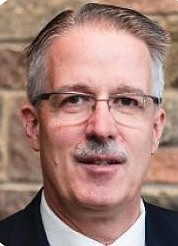More U.S. churches commit to reparations
Free Press wire reports | 12/17/2020, 6 p.m.
NEW YORK - The Episcopal Diocese of Texas acknowledges that its first bishop in 1859 was a slaveholder. An Episcopal church erects a plaque noting the building’s creation in New York City in 1810 was made possible by wealth resulting from slavery.
And the Minnesota Council of Churches cites a host of injustices, from mid-19th century atrocities against Native Americans to police killings of Black people, in launching a first-of-its kind “truth and reparations” initiative engaging its 25 member denominations.
These efforts reflect a widespread surge of interest among many U.S. religious groups in the area of reparations, particularly among long-established Protestant churches that were active in the era of slavery.
Some major denominations, including the Roman Catholic Church and the Southern Baptist Convention, have not embraced reparations as official policy. The Episcopal Church has been the most active major de- nomination thus far, and others, including the United Methodist Church and the Evangelical Lutheran Church of America, are urging congregations to consider similar steps.
The Minnesota Council of Churches initiative was announced in October.
“Minnesota has some of the highest racial disparities in the country—in health, wealth, housing, how police treat folks,” said the Rev. Curtiss DeYoung, the council’s chief executive officer. “Those disparities all come from a deep history of racism.”
The initiative, envisioned as a 10-year undertaking, is distinctive in several ways: It engages a diverse collection of Christian denominations, including some that are pre-dominantly Black; it will model some of its efforts on the Truth and Reconciliation Commission created in South Africa after the end of apartheid; and it is based in Minneapolis, where the police killing of George Floyd in May sparked global protests over racial injustice.
“This particular event, because it was right here where we live, was a call to action,” Rev. DeYoung said.
The Minnesota initiative also seeks to address social justice concerns of African-Americans and Native Americans in a unified way.
“For so long these have been two separate camps— Indigenous people and African-Americans felt they are competing against each other for the same limited resources,” said the Rev. Jim Bear Jacobs, a Native American who is the church council’s director of racial justice.
Rev. Jacobs belongs to a Wisconsin-based Mohican tribe but was born in Minnesota and is well-versed in the latter’s grim history about Native Americans. He cited the U.S.-Dakota War of 1862, which ended with the internment of hundreds of Dakota people and the hanging of 38 Dakota men in Mankato. It was the largest mass execution in U.S. history. After the war, many of the Dakota were expelled from Minnesota.
The Rev. Stacey Smith, presiding elder of the African Methodist Episcopal Church in Minnesota and a Council of Churches board member, said the reparations initiative places the state “at the epicenter of being transformed with racial justice.”
“Truth-telling in our stories is so important,” she said. “There has been such a vacuum of missing stories, not only from Black and brown people but our Indigenous people and others as well.”
In the Episcopal Church, several dioceses— including Maryland, Texas, Long Island and New York— launched reparations programs in the past 13 months, and others are preparing them.
“What is common across the whole church is the recognition that it’s time to address and reckon with the wrongs and evils of our past,” said New York Bishop Andrew Dietsche.
The largest Episcopal pledge has come from the Diocese of Texas, which said in February it would allocate $13 million to long-term programs. These include scholarships for students attending seminaries or historically Black colleges and assistance for historic Black churches.








